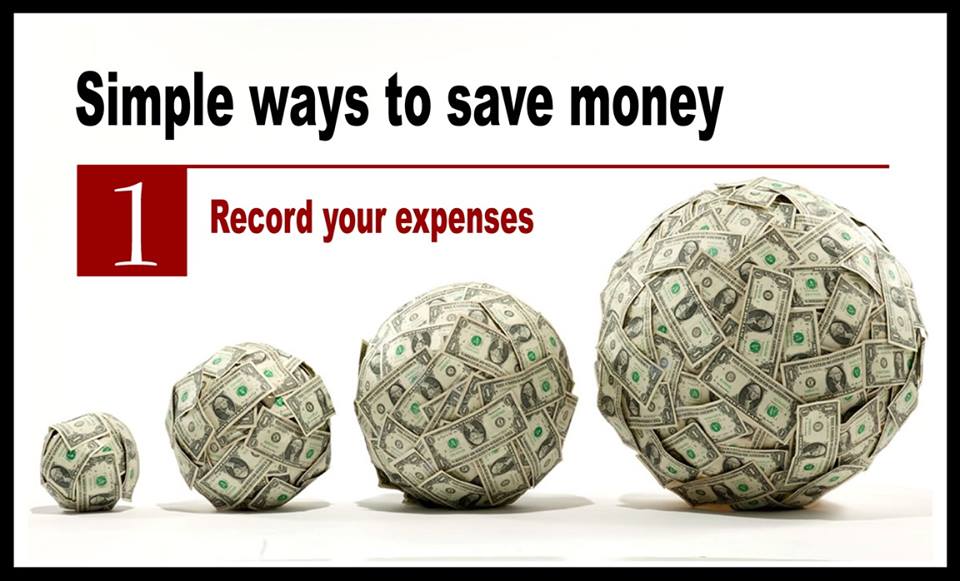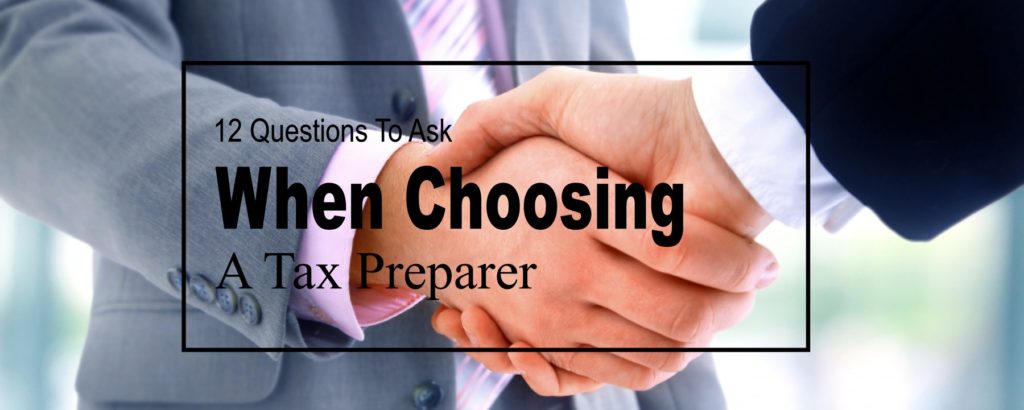 The first step to saving money is to figure out how much you spend. Keep track of all your expenses—that means every coffee, newspaper, and snack you buy. Ideally, you can account for every penny. Once you have your data, organize the numbers by categories, such as gas, groceries, and mortgage, and total each amount. Consider using your credit card or bank statements to help you with this. If you bank online, you may be able to filter your statements to easily break down your spending.
The first step to saving money is to figure out how much you spend. Keep track of all your expenses—that means every coffee, newspaper, and snack you buy. Ideally, you can account for every penny. Once you have your data, organize the numbers by categories, such as gas, groceries, and mortgage, and total each amount. Consider using your credit card or bank statements to help you with this. If you bank online, you may be able to filter your statements to easily break down your spending.
Tag Archives: 1040EZ
Thomas Vincent Cuomo, EA, CTC – 12 Questions To Ask When Choosing A Tax Preparer
 What is your tax background? A slew of letters following a name on a business card doesn’t necessarily mean more qualified. It can mean that the person has passed certain tests or has specific tax training. So ask what those letters mean – and how they would relate to the preparation of your return. Don’t be blinded by the alphabet soup. Here’s a quick guide to help you sort it out in advance:
What is your tax background? A slew of letters following a name on a business card doesn’t necessarily mean more qualified. It can mean that the person has passed certain tests or has specific tax training. So ask what those letters mean – and how they would relate to the preparation of your return. Don’t be blinded by the alphabet soup. Here’s a quick guide to help you sort it out in advance:
- A certified financial planner (CFP) is a designation for financial planners given by the Certified Financial Planner Board of Standards. A CFP must meet certain education requirements, pass an exam, have experience in the field, pass fitness standards and pay a certification fee: the coursework and exam do have tax and tax planning components as determined by the Board. A CFP may have tax experience but tax may not necessarily be the focus of their practice.
- A certified public accountant (CPA) is certified by the state to act as a public accountant. All CPAs are accountants but not all accountants are CPAs. To qualify as a CPA, candidates are required to pass an exam. Most states also require an ethics exam or course as well as continuing education credits. A CPA may specialize in tax but not necessarily: there’s a wide range of CPA services including accounting, auditing, financial planning, technology consulting and business valuation.
- An enrolled agent (EA) has earned the privilege of representing taxpayers before by either passing a three-part comprehensive IRS test or through experience as a former IRS employee. EA status is the highest credential the IRS awards. EAs must adhere to ethical standards and complete 72 hours of continuing education courses every three years.
- AFSP (Annual Filing Season Program) participants are non-credentialed return preparers who have met voluntary requirements established by IRS. Those requirements include 18 hours of continuing education, (includes a six-hour federal tax law refresher course with an exam). AFSP participants who have met the criteria receive a Record of Completion and are included in a public database of return preparers on the IRS website.
- A JD (Juris Doctor) is a law degree: having a JD means that you’ve graduated from law school but does not always mean you’ve passed the bar exam. An LLM (Master of Laws) is a second law degree, kind of like a specialty (though ethics rules in many states won’t allow you to say that). An LLM could be focused on taxation but may not be (you could have an LLM in Trial Advocacy, for example). As with a CPA, JD candidates are required to pass an exam, an ethics exam or course and take continuing education credits. Having a law degree or two doesn’t necessarily mean that an attorney prepares returns or has tax experience (you don’t have to demonstrate competence in tax law to pass the bar in most states). Avoid a lawyer who promises to do your taxes, get you out of that DUI and help you with your divorce all in the same breath.
- A Volunteer Income Tax Assistance (VITA) volunteer is trained by the IRS to prepare basic returns.
- Other accountants, bookkeepers, and tax preparers may be able to demonstrate competence but may not have formal credentials. That doesn’t mean you shouldn’t give them a look. Ask about what they do and why they’re qualified to do it.
- Have you prepared a (fill in the blank) tax return before? Remember when I said there’s no one size fits all? That’s because tax returns are not all the same. Some tax preparers can do forms 1040-EZ in their sleep. Others are fluent in Schedules C (business) and/or E (rentals). Some may focus on pass-through entities, tax-exempt organizations or fiduciary returns. Tax preparers may focus on international taxpayers and expats or small businesses. There are as many variations as there are schedules and forms. It’s not uncommon for tax preparers – especially those that have been around for awhile – to have a pretty wide scope of knowledge. But nobody can do it all and don’t trust anyone who tells you otherwise. If you have special circumstances because of your investments, occupation or residency status, find a tax preparer who has experience with your specific situation.
- Do you know the requirements of the states and localities where I am required to file? Yes, federal income taxes know no boundaries – those rules don’t change from one state to the next. But that’s not true when it comes to states and localities. Your state or locality may have quirky filing requirements, especially for business owners. It can get even more complicated if you’ve moved from state to state during the year or if you live in one state and work in another. You may also need special guidance if you own a business or real estate in a state outside of your residency or if you are the beneficiary of a trust or estate in another state. Make sure that your preparer knows – and can handle – all of those filing requirements.
- What records and other documentation will you need from me? While you shouldn’t be expected to haul in the contents of your entire home office, a reputable preparer should insist that you provide your forms W-2, 1099, 1098 and other verification of income and expenses in order to prepare a proper return. You shouldn’t use a preparer willing to e-file your return just by using a pay stub (that’s against IRS rules). A tax preparer should be able to explain what will be needed for special schedules, forms or circumstances. If a preparer isn’t inclined to do the necessary due diligence (especially for something like the Earned Income Tax Credit) in the beginning, it should give you pause about what other corners the preparer might be willing to cut later – at your expense.
- How do you determine your fees? Note the wording on this one. I didn’t say ask how much the fees would be but how the fees are determined. Prices may vary based on the complexity of your return, whether you require additional schedules (such as dividend and interest on Schedule B, business information on Schedule C, capital gains, and losses on Schedule D and/or rental income and losses on Schedule E); supporting forms (such as those for the child tax credit or additional charitable donation information); or whether your return has out of the ordinary line items (like Roth IRA conversions). Some preparers offer reduced costs for federal return but add on for state and local returns: make sure you understand the total cost. Finally, be wary of preparers who base their fee on a percentage of your anticipated refund: they have a financial incentive to encourage inappropriate credits and deductions.
- What about the extras? There’s nothing wrong with paying for the extras: just make sure that you know what those might be ahead of time. When asking about fees (see #6), be sure to ask about the cost of extra services, like the cost to fix any mistakes or to file electronically (see #7). A tax preparer should not charge you extra for a copy of your return when the return is prepared (though charging you extra for additional copies may be appropriate).
- Can I file electronically? More than 1 billion individual tax returns have been processed since the debut of electronic filing in 1990. It’s the fastest way to get your refund and tends to result in fewer math errors. It may also be required: a paid preparer who prepares and files more than ten client returns must generally file returns electronically unless the client opts out.
- Who will sign my return? Remember that your preparer must have a PTIN (see again #1). The PTIN and the preparer’s signature need to appear on your tax return. Don’t trust a preparer who refuses to sign a return or asks you to sign as self-prepared.
- When will I receive a copy of my return? It’s not unreasonable to leave your preparer’s office without a copy of your completed return; assembly may be required. However, you should receive a complete copy of your return within a reasonable amount of time following your appointment. If your preparer can’t offer a window of time to expect the copy, it might be indicative of a time management problem. If your preparer can’t promise you a copy at all, run, don’t walk away: you will need a copy for your own records.
- How do I find you if I have a question or a problem after tax season is over? I’m not a fan of tax preparers with shops that pop up on street corners during tax season and then go missing for half the year. Clients often receive requests from taxing authorities for additional information in October or November: make sure that you know how to contact the tax preparer after your return has been filed. If your tax preparer won’t be around, consider taking your business elsewhere.
- What happens if I get audited? Nobody wants to think about an audit when filing a return. But you need to ask: find out how the tax preparer handles audits or examinations from IRS. Will he or she respond to those questions? Can the tax preparer represent you in front of IRS or Tax Court? Remember that attorneys, CPAs, and Enrolled Agents are the only tax professionals with unlimited representation rights, meaning they can represent their clients on any matters including audits, payment/collection issues, and appeals in front of the IRS. AFSP participants have limited representation rights, meaning they can represent clients whose returns they prepared and signed, but only before revenue agents, customer service representatives, and similar IRS employees, including the Taxpayer Advocate Service. For 2016, PTIN holders without an Annual Filing Season Program – Record of Completion or other professional credential are only be permitted to prepare tax returns. That doesn’t have to be a deal breaker (there are professionals who focus on audits if you need to hire someone later) but you should understand the scope of services and representation before you agree to become a client.
Review your W-4: Bigger refund or bigger paycheck?
 Laying the groundwork for a tax refund requires some simple tax planning, a little research and some forethought. Reviewing your tax status, consulting your tax professional when filling out your W-4s and taking advantage of several tax credits can help you increase your tax refund. Newport Beach Tax and Financial can help decide which credits can get you the biggest refund. When you start a job, your employer asks you to complete form W-4. This tells your employer how much federal income tax to withhold from your paycheck. The more allowances you claim on the form, the less income tax will be held back. This will give you bigger paychecks, but a smaller tax refund (or potentially no tax refund or a tax bill at the end of the year). Claiming fewer allowances on your W-4 will mean smaller paychecks, since more tax will be withheld. This increases your chances of over-withholding, which leads to a bigger tax refund. That’s why it’s called a “refund:” you are just getting money back that you overpaid to the IRS during the year.
Laying the groundwork for a tax refund requires some simple tax planning, a little research and some forethought. Reviewing your tax status, consulting your tax professional when filling out your W-4s and taking advantage of several tax credits can help you increase your tax refund. Newport Beach Tax and Financial can help decide which credits can get you the biggest refund. When you start a job, your employer asks you to complete form W-4. This tells your employer how much federal income tax to withhold from your paycheck. The more allowances you claim on the form, the less income tax will be held back. This will give you bigger paychecks, but a smaller tax refund (or potentially no tax refund or a tax bill at the end of the year). Claiming fewer allowances on your W-4 will mean smaller paychecks, since more tax will be withheld. This increases your chances of over-withholding, which leads to a bigger tax refund. That’s why it’s called a “refund:” you are just getting money back that you overpaid to the IRS during the year.
Timing Can Boost Your Tax Refund
 Taxpayers who watch the calendar improve their chances of getting a larger refund. If you can, pay January’s mortgage payment before December 31st and get the added interest for your mortgage interest deduction.
Taxpayers who watch the calendar improve their chances of getting a larger refund. If you can, pay January’s mortgage payment before December 31st and get the added interest for your mortgage interest deduction.
Schedule health-related treatments and exams in the last quarter of the year to boost your medical expense deduction potential.
Paying property taxes by New Year’s Eve could make the difference between itemizing and taking the standard deduction, and thus, a bigger refund. If you’re self-employed, you can pay your fourth-quarter state estimated taxes in December, rather than in January when they’re normally due, to increase your itemizing potential
The Catch To Walmart’s Free Tax Preparation Service
Last week, Walmart announced it would offer free tax preparation services from H&R Block and Jackson Hewitt in its stores nationwide.
But before you rejoice, know there’s a catch: Both companies are only offering these services for taxpayers filing out the 1040EZ, a basic, one-page form for single or married individuals who have no dependents and earn less than $100,000 per year.
All they need to participate is their W2.
Unfortunately, the rest of us—a.k.a., homeowners, freelancers, business owners and parents—do not fall into this category.

